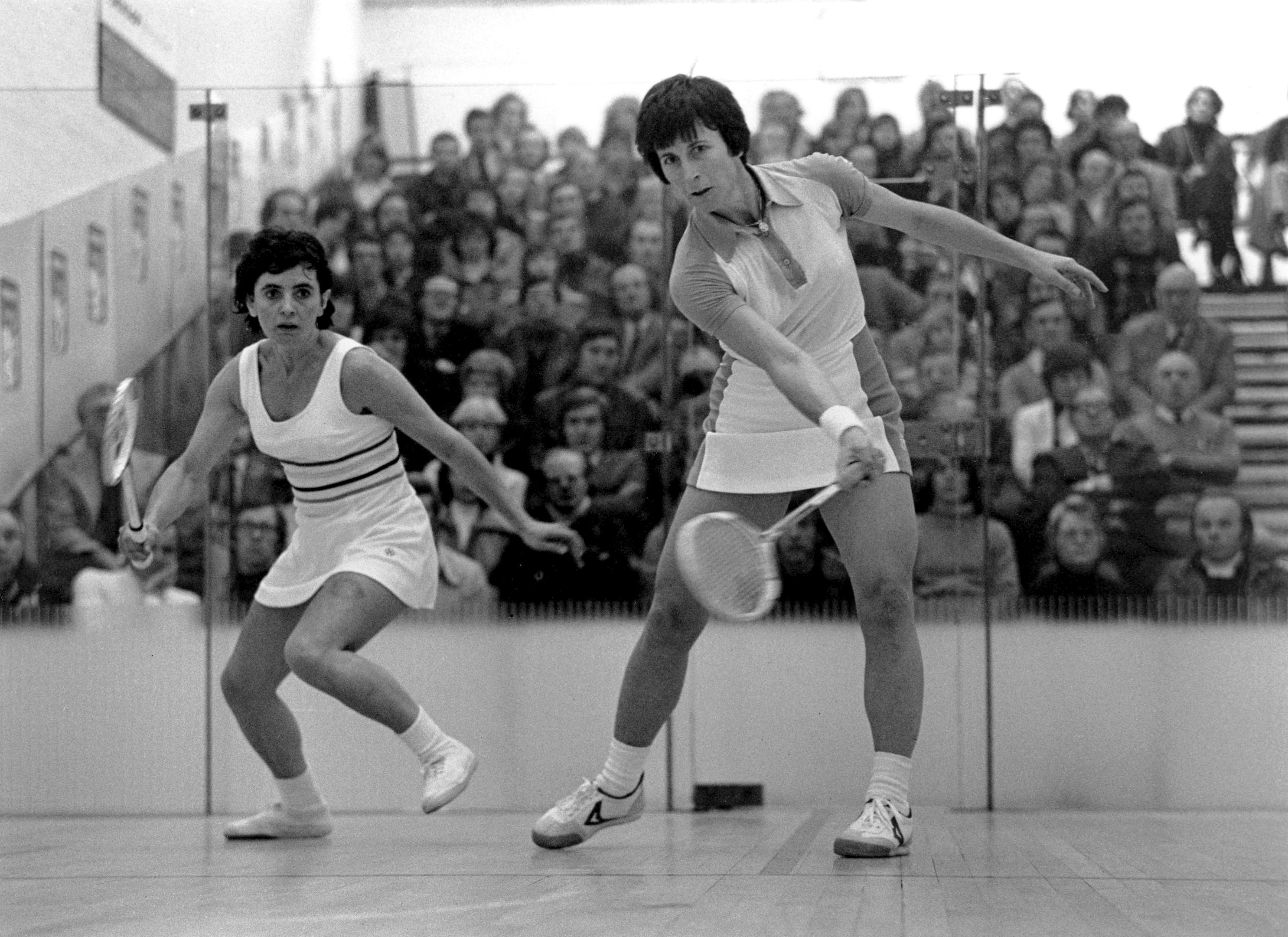News
Heather McKay: Sport’s greatest, mysterious record
Australian Heather McKay is the latest player to be inducted into Squash Players Magazine’s Hall of Fame. Richard Eaton profiles one of sport’s unrivalled records.
This article first appeared in Squash Player
——–
A mystery surrounds the extraordinary career of Heather McKay. How could such an unbeatable player and the world’s most successful athlete, male or female, have been so starved of publicity and attention?
Even allowing for the limitations of televising squash in the 1960s and 1970s, the lack of recognition McKay received was incongruous. No one else remained unbeaten for 19 years – as she did between 1962 and her retirement in1981. No one else beat her challengers so easily.
McKay didn’t just win the British Open16 times in succession, she rampaged through it. She only ever lost two games. She won the 1968 final against Bev Johnson 9-0, 9-0, 9-0 in a quarter of an hour and in all finals she conceded just 112 points. That is an average of seven points per match and less than two per game!
Although the British Open was by far and away the world’s leading tournament in that era, the great Australian stopped coming after the 1977 tournament, so she could surely have won several more titles.
The manner of her victories made her seem even more like ‘Superwoman’. Only five feet six inches tall and little more than nine stone, she was nevertheless very physical – able to hit harder than most opponents and to move faster than any of them. She turned and changed direction with devastating speed.
McKay was also very strong-minded, making her focused, ruthless, and consistent. It made her conspicuously self-possessed too, creating a formidable on-court presence. Her matches had a fascinating inevitability.
All this made her lack of recognition even more frustrating. True, during the later stages of her career McKay became a Member of the British Empire (MBE) and a Member of the Order of Australia (AM), but outside squash she was still not widely known.
She was a remarkable person as well. Born Heather Blundell in 1941 at Queanbeyan, a New South Wales town which grew from the squattage of an ex-convict, her father was a baker who encouraged her to play tennis and hockey. It was only after taking up squash to improve her fitness that she found an empathy for the sport.

Amazingly, squash was her third choice. Her progress from modest beginnings in a relative backwater to startling international domination was a tribute not only to her ability and ambition, but to the rapid commercial development of squash in Australia in the 1950s and 1960s.
Despite her athleticism, McKay chain-smoked when she first arrived in the UK. Her game also lacked the wide range of skills she later developed. According to Fran Marshall, the 1961 British Open champion, young Blundell was so annoyed at losing the Scottish Open final that in the changing room afterwards she blurted out that no one would ever beat her again. No one ever did.
How could that not have brought greater fame? Partly because squash was still relatively undeveloped and partly because the women’s game was especially lacking quality in depth.
Even with two or three rivals McKay might have had a very different career. Not until 1983, two years after her retirement, was the Women’s International Squash Players Association (WISPA) formed.
Therefore, McKay took a solitary path and by the time the fledgling women’s organisation became capable of working with her, she had sought a living through racketball in North America and coaching in Toronto.
However, McKay did return to squash for the first official Women’s World Championship at Sheffield in 1979. Though 38 years old and ring-rusty, she still prevailed, dropping only one game to England’s Sue Cogswell in the final. She retired aged 40, having developed a range of shots which enabled her to resist opponents 15 years younger than her .
Through all these years her talents for other sports did not wither. She represented Australia at hockey in 1967 and 1971, and after winning many racketball titles, she was inducted into that sport’s hall of fame.
Is McKay the finest woman squash player ever? Memories, embellished by the pleasures of reminiscing, can be very misleading. Videotapes of old sporting heroes usually reveal them, however famous, to have been nowhere near as good as modern athletes.
But McKay might be different. Her time overlapped a little with players who became founder members of WISPA and it was clear that, even at the age of 40, she was significantly better than anyone. Fantasy comparisons with later greats suggest the same. For once they may be accurate.









